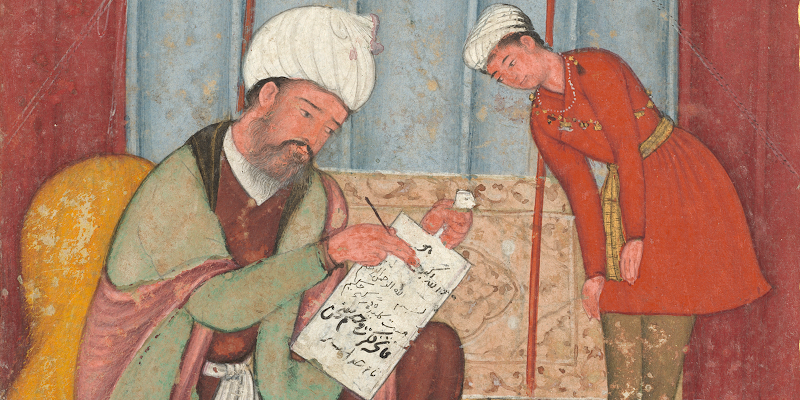A Transnational History of Kemalism
Episode 413
Feed | iTunes | GooglePlay | SoundCloud
Our latest podcast in collaboration with The Southeast Passage examines how Kemalism as a political category has been used widely and often ambiguously throughout the history of the Turkish Republic in public discourse as well as in historiography. In this episode, we discuss Kemalism from an innovative transnational perspective. The making of Kemalism was embedded in hybridity and circulations involving other regions of the post-Ottoman space. Practices of governance, material objects, new conceptions of the body and gender roles, and scientific debates created a convergence of Islam and modernity which was influenced by external references but also attracted observers from surrounding countries such as Albania, Yugoslavia and Egypt.
Stream via SoundCloud
Contributor Bios
 |
Nathalie Clayer, Fabio Giomi, and Emmanuel Szurek are members of the Center for Turkish, Ottoman, Balkan and Central Asian Studies (CETOBaC). They are the editors of Kemalism: Transnational Politics in the Post-Ottoman World, (London: Bloomsbury, 2018). |
 | Andreas Guidi is Lecturer in Modern and Contemporary History at the University of Konstanz. His fields of interest include Mediterranean History, Italian Fascism and Colonialism, post-imperial transformations in Southeast Europe, History of youth and generations, and the history of smuggling |
Credits
Episode No. 413
Release Date: 9 June 2019
Recording Location: Paris, France
Audio editing by Andreas Guidi
Music: "The Southeast Passage Theme," Giulio Stermieri and "Yanık Ömer," performed by Bayan Safiye
Images and bibliography courtesy of Nathalie Clayer, Fabio Giomi, and Emmanuel Szurek
Release Date: 9 June 2019
Recording Location: Paris, France
Audio editing by Andreas Guidi
Music: "The Southeast Passage Theme," Giulio Stermieri and "Yanık Ömer," performed by Bayan Safiye
Images and bibliography courtesy of Nathalie Clayer, Fabio Giomi, and Emmanuel Szurek
Images
 |
| Cover of the Italian Edition of Mustafa Kemal's biography by Dagobert von Mikusch (1st ed. 1929). |
 |
| Cover of Munir Šahinović-Ekremov's Turska, - danas i sjutra. Prosjek kroz život jedne države [Turkey today and tomorrow. Outline of a State's life], 1939. |
 |
| "Kemalist Turkey Hails Fascist Italy!" Cumhuriyet headline on the occasion of Prime Minister Ismet Inönü's official visit to Rome (22 May 1932) |
Select Bibliography
Adak, Sevgi. 2014. 'Women in the Post-Ottoman Public Sphere: Anti-Veiling Campaigns and the Gendered Reshaping of Urban Space in Early Republican Turkey'. Pp. 36–67 in Women and the City, Women in the City: A Gendered Perspective to Ottoman Urban History, edited by N. Maksudyan. New York: Berghahn Books.
Aytürk, İlker. 2009. 'H. F. Kvergic and the Sun-Language Theory'. Zeitschrift Der Deutschen Morgenlaendischen Gesellschaft 1(159):23–44.
Aytürk, İlker. 2015. 'Post-Post-Kemalizm: Yeni Bir Paradigmayı Beklerken'. Birikim (319):34–48. Bozarslan, Hamit. 2004. Histoire De La Turquie Contemporaine. Paris: Éd. La Découverte.
Georgeon, François and İskender Gökalp, eds. 1987. Kémalisme et Monde Musulman. Paris: Fondation de la Maison des sciences de l'homme.
Hanioğlu, M. Şükrü. 2011. Atatürk: An Intellectual Biography. Princeton: Princeton University Press.
Müller, Bertrand and Christian Jacob. 2009. 'Les Lieux de Savoir : Un Entretien Avec Christian Jacob'. Geneses 76(3):116–36.
Parla, Taha and Andrew Davison. 2004. Corporatist Ideology in Kemalist Turkey. Syracuse, NY: Syracuse University Press.
Zürcher, Erik Jan. 2004. Turkey: A Modern History. 3rd ed. London ; New York: I.B. Tauris.











Comments
Post a Comment
Due to an overwhelming amount of spam, we no longer read comments submitted to the blog.